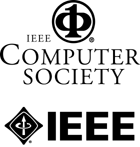Dr. K. K. Ramakrishnan
Professor of Computer Science at UCR
Title: Software-Based Networks: Leveraging high-performance NFV platforms to meet future communication challenges
ABSTRACT
Communication networks are changing. They are becoming more and more “software-based.” The use of Network Function Virtualization (NFV) to run network services in software, along with the concept of Software Defined Networks (SDN), will lead to a largely software-based network environment. To truly achieve the vision of a high-performance software-based network that is flexible, lower-cost, and agile, a fast and carefully designed NFV platform along with a comprehensive SDN control plane is needed. Our high-performance NFV platform, OpenNetVM, enables high bandwidth network functions to operate at near line speed, while taking advantage of the flexibility and customization of low cost commodity servers. We envision a dynamic and flexible network that can support a smarter data plane than just simple switches that forward packets. We will describe scheduling frameworks for OpenNetVM that enables per-flow customization and rate-and-cost proportional fair scheduling of flows.
Use of OpenNetVM opens up opportunities to re-architect the way networks are put together. As an example, we demonstrate the utility of OpenNetVM for supporting future cellular networks (e.g., 5G and beyond). NFV enables dynamic management of capacity to support the Mobile Core Network of future cellular networks. Truly exploiting the opportunities of a software-based environment requires careful thinking about the protocols utilized as well. We describe CleanG, a simplified software-based architecture for the cellular core network with a simplified control plane protocol.
SPEAKER'S BIOGRAPHY
Dr. K. K. Ramakrishnan is a Professor in the Computer Science and Engineering Department of the University of California, Riverside. From 1994 until 2013, he was with AT&T, most recently a Distinguished Member of Technical Staff at AT&T Labs-Research, Florham Park, NJ. Prior to 1994, he was a Technical Director and Consulting Engineer in Networking at Digital Equipment Corporation. Between 2000 and 2002, he was at TeraOptic Networks, Inc., as Founder and Vice President.
He is an IEEE Fellow (2005) recognized for his work on congestion control and traffic management. Dr. Ramakrishnan is also an AT&T Fellow, recognized in 2006 for his work on congestion control, traffic management and VPN services, and for fundamental contributions on communication networks with a lasting impact on AT&T and the industry. He received an AT&T Technology Medal in 2013 for his work on Mobile Video Delivery Strategy and Optimization. His work on the ``DECbit'' congestion avoidance protocol received the ACM Sigcomm Test of Time Paper Award in 2006. He has published over 250 papers and has 165 patents issued in his name, and has received a few best-paper awards. He has been on the editorial board of several journals and has served as the TPC Chair and General Chair for several networking conferences and is currently co-Editor-in-Chief for the CCF Transactions on Networking journal.
He received his MS from the Indian Institute of Science (1978), MS (1981) and Ph.D. (1983) in Computer Science from the University of Maryland, College Park, USA.
|
|
Dr. Wenjing Lou
Professor of Computer Science at Virginia Tech
Title:
the Internet of Things and its Security Challenges
ABSTRACT
Internet of Things (IoT) is an emerging technology that has drawn a lot of attention in recent years. Things in IoT can take a wide variety of forms, from simple RFIDs attached to merchandises, smart thermostats installed in the classrooms, implantable medical devices on the patients, to video cameras on top of light poles, and automobiles with built-in sensors. The explosive deployment of IoTs has pushed the boundary of the cyber-world to be tightly intertwined with our physical world. The IoT enables the exchange of information in a variety of application scenarios, each having unique characteristics and requiring unique performance guarantees, and together they bring potentially tremendous benefits to us- home automation, environmental monitoring, health and lifestyle, smart cities, just to name a few.
Some significant risks go along with the potential benefits of the IoT. As we add devices to our cloths, bodies, homes, and environments, more personal information will be collected. Some information is deeply sensitive. As devices are more closely connected with our physical world and some are capable of taking actions, data security and device security become critically important. Last year, IoT devices have also been exploited to launch the largest DDoS attack in history to disrupt the Internet services.
A secure and trustworthy IoT is not an easy task. It demands multiple lines of defense from different layers to thwart attacks from both the physical world and cyberspace. It also requires the integration of security and privacy mechanisms into computing and networking functions. In this talk, I will introduce the network architecture and unique characteristics of IoT systems. I will then focus on unique security and privacy challenges in the IoT. Many of the security and privacy problems are very challenging and call for interdisciplinary expertise from a number of technical domains.
SPEAKER'S BIOGRAPHY
Wenjing Lou is a Professor of Computer Science at Virginia Tech and a Fellow of the IEEE. She holds a Ph.D. in Electrical and Computer Engineering from the University of Florida. Her research interests cover many topics in the cybersecurity field, with her current research interest focusing on privacy protection techniques in networked information systems and cross-layer security enhancement in wireless networks.
Prof. Lou is currently on the editorial boards of ACM/IEEE Transactions on Networking, IEEE Transactions on Mobile Computing, and Journal of Computer Security. She is the Steering Committee Chair of IEEE Conference on Communications and Network Security (IEEE CNS), which is a conference series in IEEE Communications Society (ComSoc) core conference portfolio and the only ComSoc conference focusing solely on cybersecurity.
Prof. Lou served as a program director at the US National Science Foundation (NSF) from August 2014 to August 2017. At NSF, her responsibilities included the Networking Technology and Systems (NeTS) program, a core program of the Computer and Network Systems (CNS) division within the Directorate for Computer & Information Science & Engineering (CISE), and the Secure and Trustworthy Cyberspace (SaTC) program, a cross-cutting security program led by CISE/CNS.
|


